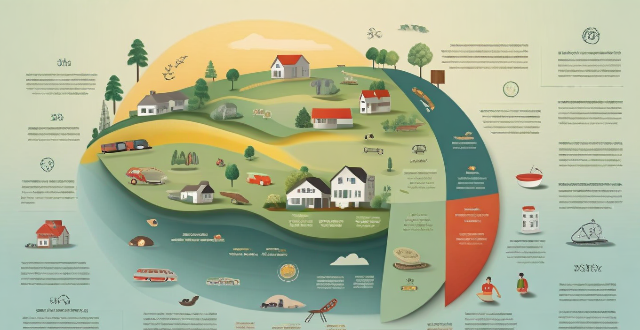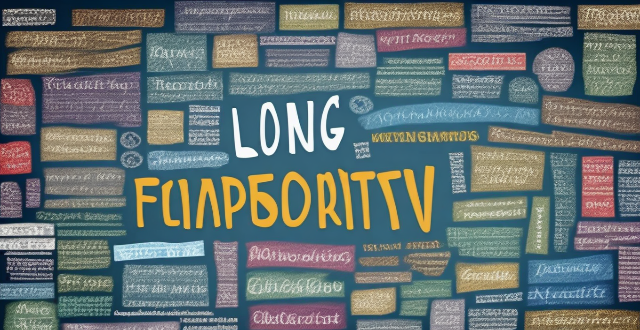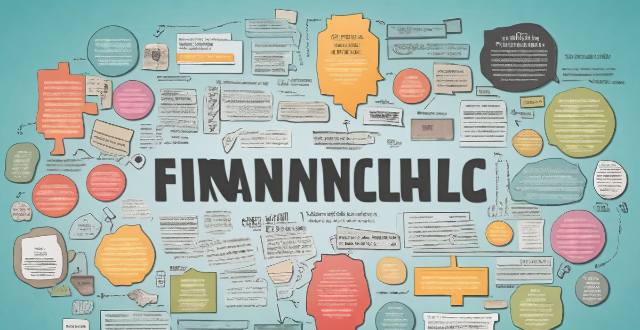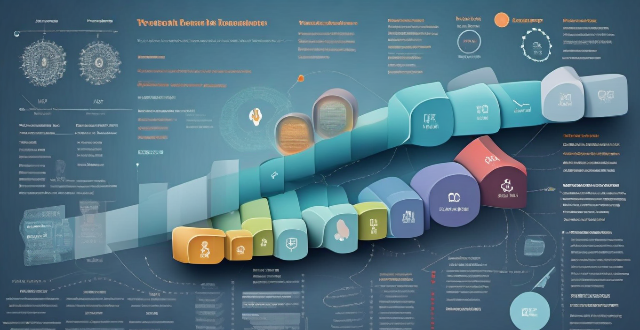Financial Debt

How can financial education help prevent debt ?
Financial education is crucial in preventing debt by empowering individuals with the knowledge and skills to make informed financial decisions. It covers understanding personal finance, smart borrowing practices, avoiding common pitfalls, and promoting healthy financial habits. By learning budgeting, saving, investing, credit score management, loan shopping, debt consolidation, and avoiding overspending, predatory lending, and credit card traps, individuals can reduce their risk of accumulating debt and enjoy greater financial stability and independence.

Can developed countries compensate for their climate debt ?
Developed countries have a moral and ethical duty to compensate for their climate debt by acknowledging historical responsibility, providing financial and technical support, and enacting policies that reduce emissions. This is crucial in addressing global inequities and mitigating the impacts of climate change. However, challenges such as quantifying climate debt and political will make compensation complex. International cooperation and agreements are necessary for effective action.

What are the common mistakes people make when trying to achieve financial freedom ?
Achieving financial freedom is a goal for many, but it's not always easy. Along the way, people often make mistakes that can hinder their progress. Here are some of the most common errors: ## 1\. Not Having a Clear Plan One of the biggest mistakes people make is not having a clear plan for achieving financial freedom. Without a roadmap, it's easy to get sidetracked or lose motivation. * **Solution**: Create a detailed plan that outlines your goals, timeline, and strategies for achieving them. ## 2\. Spending Beyond Their Means Many people fall into the trap of spending more than they earn, which leads to debt and financial stress. * **Solution**: Live below your means by budgeting, tracking expenses, and cutting unnecessary costs. ## 3\. Not Investing in Their Future Failing to invest in long-term goals like retirement or building wealth can set people back years or even decades. * **Solution**: Start investing early and regularly, even if it's just a small amount each month. ## 4\. Ignoring Debt Repayment Carrying high-interest debt can be a major obstacle to achieving financial freedom. * **Solution**: Prioritize paying off high-interest debt as soon as possible. ## 5\. Lacking Diversification in Investments Putting all your eggs in one basket can be risky. Many people make the mistake of not diversifying their investments. * **Solution**: Spread your investments across different asset classes to reduce risk. ## 6\. Not Educating Themselves About Finance A lack of financial knowledge can lead to poor decision-making and missed opportunities. * **Solution**: Educate yourself about personal finance through books, courses, and other resources. ## 7\. Failing to Review and Adjust Financial Plans Life changes, and so should your financial plans. Many people forget to review and adjust their strategies over time. * **Solution**: Regularly review your financial situation and adjust your plans accordingly.

What is climate debt ?
Climate debt is a concept that suggests wealthy nations owe a moral and ecological debt to poorer countries due to their disproportionate contribution to global warming. The idea is based on the principle of "common but differentiated responsibilities," which recognizes that all countries have a responsibility to address climate change, but the extent of this responsibility should be based on historical contributions and capacity to take action. Key points include historical responsibility, capacity to mitigate, and vulnerability and adaptation. Wealthy nations have been industrializing for longer and have more resources to invest in renewable energy, while poorer countries often lack the financial and institutional capacity to adapt to the impacts of climate change. Addressing climate debt is seen as an essential component of any equitable and effective response to the urgent challenge of climate change.

How does climate debt affect developing countries ?
The concept of climate debt acknowledges the unequal impact of climate change on developing countries, which have contributed less to the problem but suffer more from its effects. This includes economic losses, social challenges such as health concerns and food insecurity, environmental threats like biodiversity loss and water scarcity, and political and legal issues including migration and international agreements. To address these challenges, initiatives like financial transfers, technology sharing, capacity building, debt forgiveness, and just transition policies are being implemented. Recognizing and supporting the needs of developing nations is crucial for achieving a more equitable and sustainable global future.

What is the difference between credit management and debt collection ?
Credit management and debt collection are two distinct processes that involve handling financial transactions between a business and its customers. While both are crucial for maintaining a healthy cash flow, they serve different purposes and require different approaches. Credit management refers to the process of managing the risks associated with extending credit to customers, while debt collection involves recovering outstanding debts from customers who have failed to make payments as agreed upon. Both processes are essential for maintaining a healthy cash flow and ensuring the financial stability of a business.

How do I manage debt effectively and pay it off quickly ?
Managing debt effectively and paying it off quickly requires a combination of discipline, strategy, and sometimes professional advice. Here are some steps you can take to get started: ### Assess Your Debt Situation - **Understand Your Debts**: List all your debts and identify high-interest debts. - **Determine Your Budget**: Calculate your monthly income and evaluate your expenses. ### Create a Debt Repayment Plan - **Choose a Repayment Method**: Avalanche or Snowball method. - **Make a Budget and Stick to It**: Allocate more funds to debt repayment and adjust as needed. - **Consider Refinancing Options**: Consolidate debts or negotiate with creditors. ### Implement Additional Strategies - **Increase Your Income**: Take on additional work or sell unwanted items. - **Reduce Your Expenses**: Cut out luxury spending and shop smarter. - **Improve Your Credit Score**: Pay on time and monitor your credit report. ### Seek Professional Advice if Needed - **Consult a Financial Advisor**: Personalized advice and debt management plans. - **Consider Debt Counseling**: Nonprofit credit counseling and beware of scams. Consistency and perseverance are key in paying off debt quickly.

In what ways does financial literacy affect personal finance management ?
Financial literacy is crucial for managing personal finances effectively, as it helps individuals understand basic financial concepts, promotes prudent budgeting and spending habits, shapes savvy saving and investing strategies, and facilitates efficient debt management.

Can anyone achieve financial freedom ?
Financial freedom, a state where one's passive and active income covers living expenses without regular time-for-money exchanges, is a goal many strive for. Key factors for achieving it include education, saving habits, smart investing, debt management, multiple income streams, avoiding lifestyle inflation, long-term planning, and the right mindset. Actionable steps include budgeting, automated savings, early investing, continuous learning, and networking with like-minded individuals. While not everyone may achieve financial freedom due to varying circumstances, it is attainable for those who are committed and strategic in their approach.

How can I achieve financial freedom ?
Financial freedom is a state where an individual has enough savings, investments, and cash flow to live comfortably without depending on a regular job. It requires careful planning, discipline, and patience. This guide provides strategies for achieving financial freedom, including setting clear goals, creating a budget, building an emergency fund, paying off high-interest debt, investing wisely, increasing income, and living below your means. By following these strategies, you can take control of your finances and work towards achieving financial freedom over time.

What role does financial literacy play in achieving wealth growth ?
Financial literacy is essential for wealth growth, encompassing budgeting, saving, investing, retirement planning, and credit management. By understanding these aspects, individuals can make informed financial decisions, reduce debt, build wealth, and achieve long-term financial stability.

What are the consequences of not addressing climate debt ?
Addressing climate debt is crucial to mitigate environmental degradation, social injustices, and economic instability. Failure to do so exacerbates global warming effects like loss of biodiversity, sea level rise, and extreme weather events. It also leads to inequality, health issues, food insecurity, economic downturn, investment risks, and job losses. Recognizing and addressing climate debt is essential for achieving global sustainability goals and ensuring peace and justice worldwide.

What role do individuals play in addressing climate debt ?
The text discusses the concept of climate debt and the role individuals can play in addressing it. The author outlines six key areas where individuals can make a difference, including understanding the concept of climate debt, reducing personal carbon footprint, supporting sustainable practices, advocating for change, embracing a sustainable lifestyle, and educating future generations about the importance of environmental stewardship. Each section provides specific actions that individuals can take to contribute to reducing climate debt and mitigating the effects of climate change.

How long does it take to achieve financial freedom ?
Achieving financial freedom is a goal many people strive for, but the time it takes varies based on individual circumstances, habits, and market conditions. Factors influencing the journey include initial financial standing, income level and consistency, lifestyle and expenses, investment choices and returns, and economic and market conditions. Strategies to potentially shorten the timeline include increasing income, reducing expenses, investing wisely, managing debt, and planning for retirement. The path to financial freedom is unique for each person, but understanding the factors and using effective strategies can help anyone work towards achieving financial independence more efficiently.

How can employers promote financial knowledge among their employees ?
Employers can promote financial knowledge among employees by offering financial education programs, encouraging retirement planning, providing access to financial counseling services, offering financial wellness programs, creating a culture of financial literacy, providing financial incentives for participating in financial education programs, and offering tax planning services.

How do you use financial ratios to analyze a company's stock ?
Using Financial Ratios to Analyze a Company's Stock Financial ratios are essential for analyzing a company's stock, providing insights into financial health, operational efficiency, and profitability. By calculating and interpreting these ratios, investors can make informed decisions about buying, holding, or selling stock. There are four main types of financial ratios: liquidity, solvency, operating, and profitability. To analyze a company's stock using financial ratios, gather financial data, calculate the relevant ratios, interpret the results, and make investment decisions based on your analysis and other factors.

How do financial regulations affect consumers ?
Financial regulations protect consumers from fraud, promoteFinancial regulations protect consumers from fraud, promote credit, outline consumer rights, promote competition, ensure access to credit, outline consumer rights, and contribute to financial stability.

How do low-income countries manage their debt and avoid falling into a debt trap ?
文章讨论了低收入国家在管理债务方面面临的挑战,并提出了避免陷入债务陷阱的策略。这些策略包括:将债务管理作为经济政策的重点;多元化融资来源;与债权人协商优惠条件;建设机构能力;促进经济增长和发展。通过实施这些策略,低收入国家可以有效管理债务,实现可持续经济发展。

What are some common misconceptions about personal finance that financial education aims to correct ?
The text discusses common misconceptions about personal finance, such as the belief that saving is more important than investing and that credit cards are inherently bad. It also touches on the perceived tedium of budgeting, the underestimation of life insurance's importance, and the notion that retirement savings are unattainable for some. Moreover, it dispels the myth that all investments carry high risk and emphasizes the necessity of having a will. Overall, the article highlights how financial education can correct these misguided beliefs and help individuals manage their money wisely to achieve their financial objectives.

How has the COVID-19 pandemic highlighted the importance of financial literacy ?
The COVID-19 pandemic has underscored the importance of financial literacy. It helps people navigate job losses, market volatility, personal finance management, long-term planning, and healthcare needs. Financially literate individuals are better equipped to handle economic disruptions and make informed decisions about their money. Seeking support and resources is also crucial during challenging times. Overall, financial literacy is essential for personal resilience and economic stability in the face of global crises like the pandemic.

What are the long-term effects of lacking financial knowledge on an individual's life ?
The article discusses the long-term effects of lacking financial knowledge on an individual's life, which include difficulty in managing finances, increased debt and financial stress, limited opportunities for wealth accumulation, dependence on others for financial decisions, and missed opportunities for financial education. It emphasizes the importance of financial education in achieving financial goals and reducing stress.

What role does budgeting play in financial planning ?
Budgeting is crucial for financial planning, helpingBudgeting is crucial for financial planning, helping-term goals by tracking income helping individuals and businesses achieve long-term goals by tracking income, expenses, and savings. It aids in setting goals, tracking expenses to cut back on spending, allocating resources effectively, managing cash flow, and reducing financial stress. By creating a realistic budget and sticking to it, individuals and businesses can maintain a healthy financial status and achieve their short-term and long-term objectives.

What are some effective methods for teaching financial literacy to young adults ?
Financial literacy is a crucial life skill that every young adult should possess. It involves understanding how to manage money effectively, make informed financial decisions, and plan for the future. Here are some effective methods for teaching financial literacy to young adults: start with the basics, use interactive learning tools, encourage real-world practice, and provide access to financial professionals.

What are the main objectives of financial regulation ?
The main objectives of financial regulation are to promote stability, efficiency, and protect consumer interests in the financial sector. This involves preventing systemic risks, protecting depositors and investors, ensuring market integrity, encouraging competition, improving access to finance, facilitating innovation, ensuring fair treatment, providing education, and handling complaints. By achieving these goals, financial regulators help maintain a healthy and vibrant economy while safeguarding the interests of all stakeholders involved.

How can I maintain my financial freedom once I achieve it ?
The text discusses strategies for maintaining financial freedom, including creating a budget and sticking to it, building an emergency fund, investing wisely, living below one's means, and continuously learning and growing. It emphasizes the importance of discipline, planning, and effort in sustaining financial independence.

What is the role of financial advisors in developing an investment strategy ?
Financial advisors are pivotal in shaping investment strategies by identifying financial goals, assessing risk tolerance, analyzing market conditions, designing portfolio allocation, monitoring and adjusting investments, and providing ongoing advice. They help individuals and businesses achieve their short-term objectives like building an emergency fund and reducing debt, as well as long-term goals such as retirement planning and education funding. By evaluating risk appetite, they tailor investment plans that prioritize capital preservation or pursue growth potential through diversification. Understanding macroeconomic factors and industry trends further informs investment decisions. In portfolio design, they allocate assets across classes and employ diversification to mitigate risks. Through performance tracking and rebalancing, they ensure investments remain aligned with goals. Moreover, financial advisors offer educational and emotional support, enhancing client knowledge and helping them manage risks. Overall, they ensure strategies reflect clients' evolving needs, fostering informed and balanced investment approaches.

Who is responsible for paying off the climate debt ?
The concept of "climate debt" refers to the cumulative emissions of greenhouse gases by developed countries, which have contributed significantly to global warming and its associated impacts. This debt implies a moral and ethical obligation on the part of these countries to take action to mitigate and adapt to climate change, as well as to support developing nations in doing the same. Key Points: - Historical Emissions: Developed countries are primarily responsible for climate change due to their long history of high GHG emissions. - Economic Capacity: Wealthier nations have greater financial resources to invest in climate solutions. - Technology and Innovation: Developed countries often lead in technological advancements that can help reduce emissions and build resilience. - International Agreements: Under the United Nations Framework Convention on Climate Change (UNFCCC), developed countries have committed to providing financial and technical support to developing countries. - Loss and Damage: Developing countries, especially those most vulnerable to climate impacts, require assistance from wealthier nations to cope with losses and damages. - Equity and Justice: Addressing the climate debt is a matter of intergenerational and international equity and justice.

How can I measure the success of my wealth growth efforts ?
Measuring the success of wealth growth efforts involves tracking key indicators such as net worth increase, investment returns, savings rate, debt reduction, and financial goals achievement. Regularly reviewing these metrics can help individuals make informed decisions about their financial strategies and adjust their approach to achieve long-term financial objectives.

What are the key components of a comprehensive financial education program ?
A comprehensive financial education program should cover key components such as budgeting, saving, investing, and retirement planning to help individuals make informed decisions about their financial future. The program should teach understanding of income and expenses, creating a budget plan, the importance of saving, strategies for saving, basics of investing, types of investments, investment strategies, the importance of retirement planning, retirement accounts, and retirement strategies. By covering these components, individuals can improve their financial literacy and achieve their financial goals.

What are the best financial products for long-term investment ?
The text provides a comprehensive overview of the various financial products available for long-term investment. It explains the definition, benefits, and risks of each option including stocks, bonds, mutual funds, ETFs, and REITs. The text emphasizes the importance of considering one's investment goals, risk tolerance, and financial situation before choosing which products to include in a portfolio. Overall, the text serves as a useful guide for individuals looking to make informed decisions about their long-term investments.